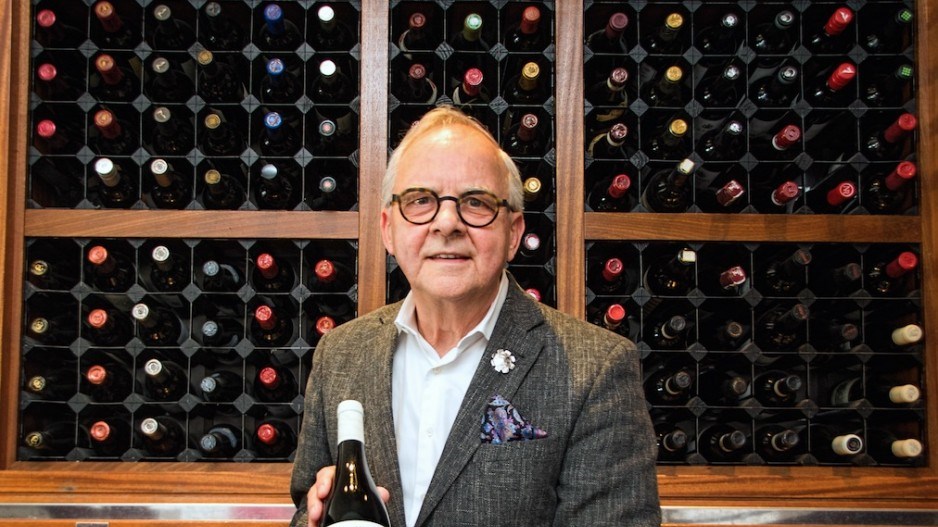The B.C. government is considering lowering the cost of alcohol purchases for restaurant owners, Attorney General David Eby told Business in Vancouver.
Restaurateurs have long had to pay the full retail price for all liquor that they buy for their establishments. They then usually mark up that amount by about 2.3 times in setting a menu price.
Eby said he may make the change to allow restaurant owners to pay a slight premium of about 5% on top of the wholesale price for alcoholic beverages that retailers pay for their products.
The result would be that restaurant owners could save around 20% on their alcohol purchases, according to restaurant owners’ estimates.
All restaurant owners who spoke to BIV said that they would pass on that saving to customers to encourage business and stay competitive.
“In the [last election] campaign we talked about providing hospitality [businesses] with a break,” said Eby, who is in charge of liquor policy. “That’s still on the table.”
He would not provide a timeline for when changes will take effect because, he said, his staff are busy drafting regulations for cannabis legalization, which starts October 17. Any changes to liquor regulations would require cabinet approval but would not need to be in a bill that would pass a full vote of the legislature.
“It is in our ministry work plan for the rest of our term,” he said.
One stumbling block to the proposed change to pricing is opposition from those who believe that if the government reduces the price of alcohol that it sells to restaurants, the province will rake in less revenue from alcohol sales.
Eby said, however, that he has spoken with public servants and retailers who argue that increased sales spurred by lower alcohol prices will compensate provincial coffers.
“I had someone describe it as one plus one equals three,” Eby said.
This rationale is similar to the classic conservative argument advocating for tax cuts, which holds that lower taxes will stimulate the economy, and this extra economic activity will in turn provide more revenue to government.
Another change that Eby is considering is to allow restaurant owners to buy their establishment’s alcohol from private liquor stores if they so choose. Current government regulations require that they buy from the British Columbia Liquor Distribution Branch.
“This is good news,” Bishop’s Restaurant owner John Bishop told BIV. “Wine, beer and spirits are the only things that we pay the full retail price for. Everything else we get to pay a wholesale price.”
Cioppino’s Mediterranean Grill & Enoteca owner Pino Posteraro was also pleased with the potential for lower prices, but said more needs to be done.
“It could be a good start, but it is not the solution,” he said. “It is the whole system that has to be revised.”
Government taxes on alcohol are so exorbitant in B.C. that tourists think restaurant owners are ripping them off, according to Posteraro.
“We look like thieves,” he said. “How can you justify that a bottle of wine costs $90 here and it is only $60 in Quebec?”
Posteraro sticks to a formula where the price he pays for alcohol is about 42% of the price he puts on his menu.
That means that if he buys a bottle of wine for $30, he will charge $71, and if he buys a bottle for $40, he will charge $95.
Despite that significant profit margin on alcohol, Posteraro pinned his overall profit margin at about 1%, or a tenth of what it was more than a decade ago. During the intervening years, taxes have risen and he has been less able to pass on higher food costs to customers, he said.
Posteraro’s rent in Yaletown is $58,000 per month, he said, while his payroll is about $45,000 every two weeks.
When other costs are added into his budget, he must generate around $250,000 in sales each month just to break even, he added.
The topic of lowering alcohol prices for restaurant owners arose in late June because the B.C. government released a report from the government-appointed business technical advisory panel on liquor policy.
That report recommended that restaurateurs be able to buy alcohol at reduced prices. (Click here to read more about that report.)
Mark Hicken, who chaired the panel, told BIV that he believes that lower pricing for restaurant owners will help attract tourists and get diners to spend more.
“Rather than buying a bottle of wine, they now might just buy a glass because the price to them seems high,” he said.•




